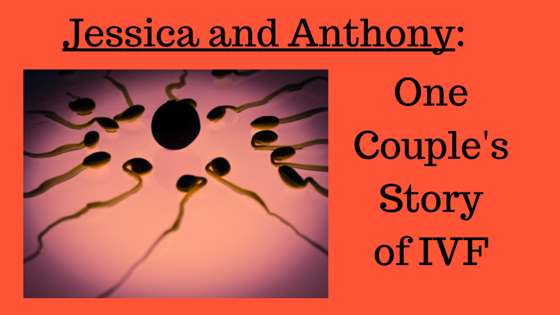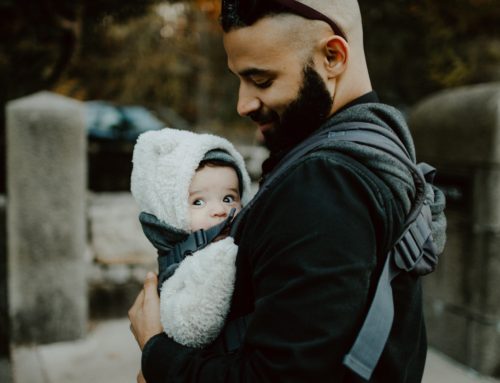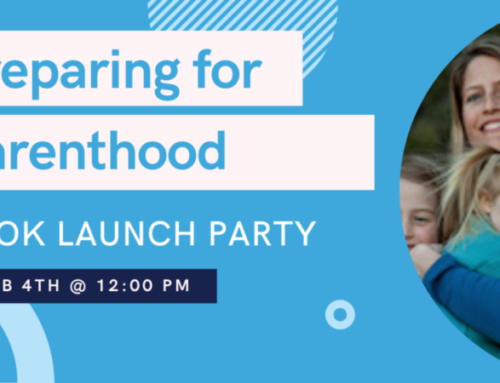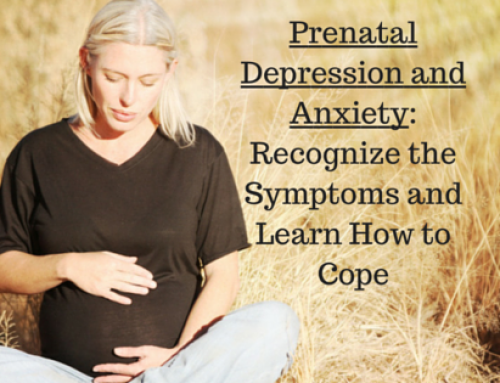Jessica and Anthony were married in 2002. They were young, healthy, and wanting to start a family as soon as possible.
But after one year of consciously trying, they were not yet pregnant.
Jessica’s doctor ran a full workup on both Jessica and Anthony.
“You’re both perfectly healthy,” the doctor said. “There’s no physical reason you can’t get pregnant.”
“Why are we not becoming pregnant then?” thought Jessica. “Is it due to stress?”
Jessica and Anthony tried for six more months. They were still not pregnant. They were becoming increasingly stressed.
They decided to try six months of IUIs. The IUIs did not work.
The couple then moved several times for Anthony’s work. Now, they were feeling very stressed, and anxious. Jessica knew these feelings would not be helpful in trying to conceive.
They decided to join an infertility group, which focused on mindfulness, and strategies for optimal health for conception (yoga, acupressure, nutrition, etc.), and that provided the social support of other couples trying to conceive.
Jessica felt inadequate. “What is wrong with me?” she thought. “Why can’t my body do this?”
Jessica was very successful in all other realms of her life. Her parents had raised her with the value: if you work hard, you can fulfill all of your dreams. Why should pregnancy be any different?
“We were so ready,” Jessica said. “We had our careers, our marriage, our house. But all I really wanted was a baby.”
Jessica started using Chinese fertility herbs to make teas – a process that she said took hours of preparation every day, and didn’t smell very good. She also started doing acupuncture for fertility.
Jessica and Anthony began fighting a lot, with Jessica saying she did not feel as supported as she needed to. “Anthony’s family [of origin] actively avoided feelings,” she said. “He was more practical in his approach to trying to conceive.”
With advice from her doctor, Jessica began using Progesterone injections, and the medication Clomid.
More months went by. Jessica came to the point of accepting, with resignation, that she may never have a biological child.
Then Jessica finally became pregnant. But she lost the baby at 17 weeks.
This was devastating for both her and Anthony. They knew the sex of the baby, and had been listening to the baby’s heartbeat.
Jessica’s doctor reported that the baby was not lost due to a chromosomal abnormality, which made Jessica feel even worse. She felt that her body was not able to do what was needed to support a baby’s life.
However, now the couple knew that they could get pregnant. But they also had deep concerns about another, second-trimester loss. They decided to try IVF.
Fortunately, Anthony’s insurance covered most of the high cost.
Jessica had eight of her eggs extracted.
Meanwhile, Anthony was trying to do his part to gather his sperm. But he felt that the doctor’s-office room was not private enough for him, and he could see people’s shoes under the gap in the door.
Jessica waited and waited. What was taking him so long? Anthony rushed out through the door and drove home with Jessica to make love, telling her his predicament on the way. They gathered the sperm and went back to the office. Jessica said they still laugh about this incident.
Two of the eight extracted eggs were successfully fertilized and began growing healthfully. Both were implanted in Jessica’s womb.
Just before Thanksgiving, the doctor’s office called to let the couple know they were pregnant. “We were thrilled!” Jessica said.
One of the eggs continued to grow, leading to a full-term pregnancy and the couple’s first-born child.
The couple was over-the-moon. They were relieved. They reveled in their baby’s existence.
After a couple of years, the couple hoped to have a second child.
They became pregnant again, but had a second miscarriage.
Soon after the miscarriage, they became pregnant again through intercourse with their next child. Jessica had to take baby aspirin (to thin blood) and Progesterone injections throughout her pregnancy, but they were thrilled to have two children.
Jessica said the most helpful support she received during this stressful journey was from the five-week infertility group, which brought in speakers on different topics and provided the solid social support of others going through similar challenges. The men and women broke into two separate groups after a brief check-in at beginning of the group, then reconvened at the end. This helped Jessica to feel really seen and held in her emotional process.
Jessica was the first to become pregnant of this group, and was very cognizant of how this could lead to mixed feelings for others who were still trying to become pregnant. Nevertheless, Jessica and Anthony stayed in contact with two couples from the infertility group, and are still very close friends.
Jessica and Anthony still revisit the challenges of building their family, and the stresses of trying to communicate well and really be there for each other during this time. Sometimes similar themes arise for the couple under stress, and they reflect on how all of “their stuff” comes up, she said – their core beliefs, and early wounds, specifically – in dealing with such an intense process.
For more information on Infertility and Prenatal Loss Counseling click here.







Leave A Comment